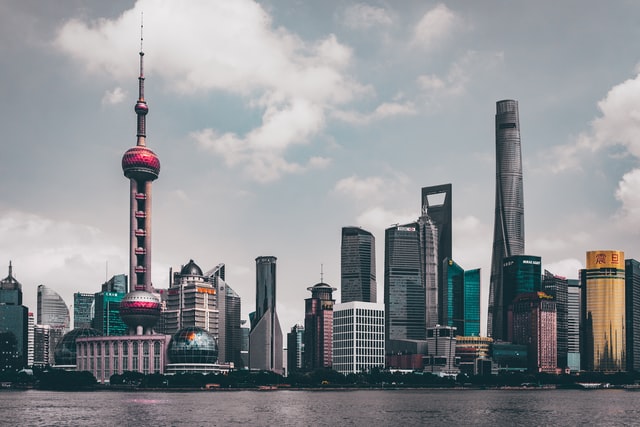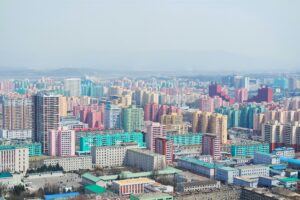On June 10, 2021, the People’s Republic of China passed the ‘Anti-Foreign Sanctions Law’, (中华人民共和国反外国制裁) which marked the end of the ‘silent era’ for China when it comes to countering punitive Western sanctions directed against the country.
The National People’s Congress was expected to add the legislature to the Basic Law of Hong Kong (and to that of Macau), but the prevailing anxiety was relieved when NPC announced a postponing of the vote.
Put into effect by the highest legislative organ, China’s Anti-Foreign Sanctions Law anoints government agents such as Ministries and State Councils to deploy countermeasures against U.S. and E.U. sanctions.
The legal arsenal of the law encompasses a range of coercive tools that include visa denials, asset seizures and deportation orders against companies willing to adhere to the U.S. sanctions targeting PRC officials or businesses. The way for foreign companies to be sued at Chinese courts for complying with foreign sanctions is also open, signalling the possibility of a future legal quagmire for businesses caught between regulatory regimes.
Unlike reciprocal sanctions adopted by Russia which are often limited to diplomatic repercussions, and coarser measures such as opaque blacklists, Chinese anti-sanctions law and possible further moves possess the power to spell substantial damage to the business environment in Hong Kong.
Where complying with U.S. sanctions would mean non-compliance with the host country’s protective laws, businesses operating in Hong Kong would be compelled to align to a single system, or to devote time and effort to decipher complexities, fine-tune ways of circumventing out of clashing legislation.
“Chinese anti-sanctions law and possible further moves possess the power to spell substantial damage to the business environment.”

Ambiguous to the point?
Nevertheless, despite rash statements and an anticipation of turmoil, highlighted often was the ‘flexibility’ and the ‘vagueness’ of the new Chinese law. “Unspecified” seemed to be the keyword in several commentaries and reports. The implications of the Chinese law was considered ambiguous by many, interpreted to be allowing PRC government agencies the liberty to apply customised measures to individual cases. Moreover, the law was likened to the E.U. Blocking Stature that shielded E.U. companies trading with U.S. sanctioned countries such as Libya or Iran.
It is evident that the Chinese anti-sanctions law is muscle-flexing at the most opportune, or the most pressing moment. A tour-de-force of sovereignty in the face of mounting pressure for China’s stance on issues such as Xinjiang, Hong Kong and Taiwan. However, given the tides of tension between the two systems, its reverberations are likely to cause complications much harder to surmount than any protective legislation put in effect by the E.U.
The recent postponing of the vote means, according to Tam You-chung, Hong Kong’s delegate to the NPC, a pause for further study of “related issues” expected to make “the anti-foreign sanctions law more effective”. The main bill had passed without the legislative body consulting public opinion, via swift review and the Hong Kong law is expected to pass eventually.
The Impact
It is no question that financial institutions are the first to be affected by the “anti-sanctions” China is about to push. 80% per cent or more of the banks active in Hong Kong are of international origin, and compulsory adherence to sanctions targeting foreign entities and individuals can trigger exits.
“An exit of businesses en masse to relocate in regional hubs such as Tokyo or Singapore or being compelled to carry out a ‘decoupling’ would mean a sweeping loss for China.”
Substantiating Hong Kong’s decades old reputation as a stable financial hub, banks and financial entities raise the stakes drastically in a game China would not want to lose. In the interconnected world of global economics, an exit of businesses en masse to relocate in hubs such as Tokyo or Singapore or being compelled to sever ties would mean a sweeping loss for China. The mutual exchange of regulatory moves can encourage radical restructuring of operations for banks and multinationals who would want to minimize potential damage. Sanctifying Chinese branches as separate entities is an option.
The probability of the prevalence of the current equilibrium aside, the anti-sanctions law cannot and should not be considered separate from the issues of Taiwan-PRC relations, the Belt and Road initiative (BRI), data acts, China’s plans to establish an “ecosystem” insulated against U.S. interference.
For MENA, Eastern Europe and Turkish companies, especially in the textile, spare parts, metal and associated industries for whom trade with China is vital, the implications of a full-fledged and rigorously enforced Chinese anti-sanctions regime can be serious. Given the overtly political nature of legislation, companies will need to grow a keen “political eye” to track minute changes and hone their reflexes to spot compliance pitfalls ahead.







